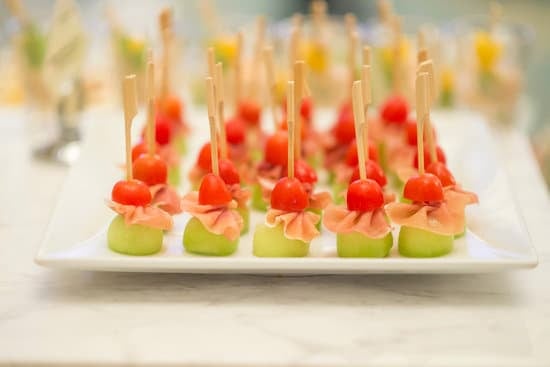Are you planning a wedding and wondering, “Do I need a wedding program?” Wedding programs are a traditional part of the ceremony that can serve multiple purposes. From guiding guests through the order of events to providing meaningful details about the couple, a wedding program can add an extra special touch to your big day.
Wedding programs have been a staple of wedding ceremonies for many years, providing valuable information to guests and enhancing the overall experience. Whether you choose to go with a traditional format or put a modern spin on it, there are endless possibilities for creating a wedding program that reflects your unique style as a couple.
In this article, we will delve into the purpose and elements of wedding programs, explore the benefits of having one, provide tips for personalizing your program, and offer alternatives to traditional formats. By the end of this comprehensive guide, you will have all the information you need to decide whether or not you truly need a wedding program for your special day.
The Purpose of a Wedding Program
One of the main purposes of a wedding program is to provide guests with an outline of the ceremony. This may include details such as the order of events, hymn lyrics, readings, and names of key participants. By offering this information, you allow your guests to feel more involved in the proceedings and understand the significance of each part of the ceremony.
Another important purpose of a wedding program is to introduce members of the wedding party. Including short biographies or fun facts about each person in your bridal party can help guests get to know them better and feel more connected to your celebration. Additionally, acknowledging close family members or friends who have passed away or couldn’t attend can add an element of sentimentality that honors those who are important to you.
Lastly, having a timeline schedule in your wedding program will inform guests about what will happen next throughout the day, especially if there is downtime between events. This element ensures that everyone is on the same page and knows what to expect.
Traditional Elements of a Wedding Program
When it comes to planning a wedding, traditional elements are often an important aspect for many couples. The same applies to wedding programs, as they traditionally include specific details and sections that have been commonly included for decades. Some of the traditional elements typically found in a wedding program include:
1. Order of Ceremony: This is usually the first section of a traditional wedding program and outlines the sequence of events that will take place during the ceremony. It can include the processional, opening remarks, exchange of vows, ring exchange, unity ceremony (if applicable), closing remarks, and recessional.
2. Bridal Party Information: Another common element found in traditional wedding programs includes information about the bridal party. This may consist of the names of bridesmaids, groomsmen, flower girls, ring bearers, maid of honor, and best man along with their relation to the couple.
3. Musical Selections: Many couples choose to include details about the musical selections that will be performed during the ceremony in their wedding program. This can encompass information on any prelude music as guests arrive, processional music for the bridal entrance, special performances or readings during the ceremony, and recessional music as guests depart.
4. Acknowledgments and Thank Yous: Lastly, it is customary for traditional wedding programs to feature a section where couples can express their gratitude towards family members, friends, and loved ones who have made significant contributions towards their special day.
For those who are looking to incorporate these classic elements into their own wedding program but still want to add a modern twist or personalized touch – do not hesitate to do so. Personalization is key when creating your perfect wedding program.
Modern Elements of a Wedding Program
In this modern age, the traditional elements of a wedding program have evolved to incorporate more personalized and unique touches. Couples today are choosing to infuse their personalities and individuality into their wedding programs, making them more meaningful and impactful for their guests.
Custom Graphics and Designs
One modern element of a wedding program is the use of custom graphics and designs. Couples are opting to include personalized monograms, illustrations, or even photographs that reflect their love story or shared interests. These visually appealing elements not only add a personal touch but also make the wedding program a keepsake for guests to cherish.
Interactive Features
Another contemporary trend in wedding programs is the inclusion of interactive features. Some couples choose to incorporate QR codes that lead guests to a digital version of the program or provide links to playlists, photo galleries, or fun quizzes related to the couple. By integrating interactive elements, couples can engage their guests in a unique and memorable way.
Incorporating Green Practices
As sustainability becomes an increasingly important value for many couples, modern wedding programs often include eco-friendly practices. This may involve using recycled paper, natural materials, or opting for digital versions of the program instead of printed copies. By embracing green practices in their wedding programs, couples can align their special day with their environmental values.
These modern elements serve as opportunities for couples to express themselves and create a distinctive experience for their guests through their wedding programs. Adding these personalized touches can elevate the overall atmosphere of the wedding and leave a lasting impression on those in attendance.
Benefits of Having a Wedding Program
When planning a wedding, there are many details to consider, and one of those is whether or not to have a wedding program. While some may see it as an unnecessary expense, there are actually several benefits to having a wedding program that can make your special day run more smoothly and be more enjoyable for your guests.
Keeps Guests Informed
One of the key benefits of having a wedding program is that it keeps your guests informed about what to expect during the ceremony. It provides a schedule of events, including the order of the procession, readings, musical selections, and other important moments. This ensures that guests know what is happening and can follow along with the ceremony without feeling confused or left out.
Serves as a Keepsake
Another advantage of having a wedding program is that it serves as a keepsake for both you and your guests. Many couples choose to include personal touches such as love quotes, photos, or special thank-you messages in their programs, making them a cherished memento from the day. Guests can take them home as a reminder of the beautiful ceremony they witnessed and the couple’s love story.
Enhances the Overall Aesthetic
Lastly, having a wedding program can enhance the overall aesthetic and ambiance of your ceremony. By incorporating elements such as custom fonts, artwork, or unique paper materials, you can add an extra touch of elegance and personal style to your wedding. This attention to detail creates a cohesive look that adds to the beauty and uniqueness of your special day.
Ultimately, while deciding whether or not to have a wedding program is up to personal preference, there are undeniable benefits to including one in your ceremony. From keeping guests informed to serving as a tangible reminder of your love story, a well-crafted wedding program can be an impactful addition to your big day.
A Step-by-Step Guide on Creating a Wedding Program
Creating a wedding program can be an enjoyable and creative task for engaged couples. It not only serves as a guide for guests to follow along with the wedding ceremony, but it also provides an opportunity to add personal touches that reflect the couple’s unique style and love story. In this section, we will provide a step-by-step guide on how to create a wedding program that is both informative and meaningful.
The first step in creating a wedding program is to gather all the essential information that needs to be included. This includes the date, time, and location of the wedding ceremony, as well as the names of the bride and groom, their parents, members of the bridal party, officiant, and any other important individuals involved in the ceremony. Once you have gathered this information, you can start designing the layout of your wedding program.
Next, consider how you want to format your wedding program. Traditionally, wedding programs are printed on letter-sized paper and folded in half or in thirds.
However, there are many creative ways to present your program, such as using fan shapes for outdoor weddings or incorporating unique materials like parchment paper for a vintage touch. When it comes to design elements, you can choose from a variety of fonts, colors, motifs, and illustrations that complement your wedding theme or color scheme.
After deciding on the format and design of your wedding program, it’s time to draft the content. This includes outlining the order of events during the ceremony and any special readings or musical performances that will take place. You may also want to include explanations or translations of any cultural or religious customs that will be observed during the ceremony. Finally, be sure to proofread all content carefully for accuracy before sending it off for printing.
| Key Steps | Description |
|---|---|
| Gather Information | Collect essential details about the wedding ceremony. |
| Choose Format & Design | Decide on layout, fonts, colors, and design elements for your program. |
| Draft Content | Outline order of events during ceremony and include special readings or performances. |
Tips for Personalizing Your Wedding Program
When it comes to personalizing your wedding program, there are plenty of creative ways to make it unique to you and your partner. One popular option is to include a timeline of your relationship, from the moment you met to the day of your wedding.
This could be a fun way for your guests to learn more about your love story and how you arrived at this special day. You can also add personal touches such as favorite quotes, song lyrics, or even inside jokes that are meaningful to you as a couple.
Another way to personalize your wedding program is by incorporating elements of your cultural background or family traditions. Whether it’s including a special ritual or ceremony that holds significance in your culture, or simply adding symbols and motifs that represent your heritage, this can add an extra layer of meaning to your wedding program. It’s important for guests to feel connected to the celebration, so including these personalized elements can make them feel more involved in the festivities.
You can also consider adding a thank-you note or message of appreciation to your guests in the wedding program. This is a thoughtful way to express gratitude for their presence on this special occasion. Additionally, you can use this opportunity to acknowledge and honor loved ones who may not be present at the wedding, such as family members who have passed away. These personal touches can really make the wedding program feel more intimate and memorable for everyone involved.
Overall, personalizing your wedding program allows you to infuse aspects of your unique relationship and personalities into the celebration. It’s an opportunity for you and your partner to share more about yourselves with loved ones on this joyous day. Whether it’s through storytelling, cultural elements, or messages of gratitude, there are countless ways to make your wedding program truly one-of-a-kind.
Alternatives to Traditional Wedding Programs
If you’re considering alternatives to traditional wedding programs, there are a few creative options to explore. Some couples opt for a wedding website instead of a printed program. This allows them to share important details about the ceremony, reception, and the wedding party with their guests. A wedding website can also include fun facts about the couple, photos, and even RSVP options for guests.
Another alternative to the traditional wedding program is a large sign or board displayed at the entrance of the ceremony or reception venue. This can include all the essential information that would typically be found in a printed program, such as the order of events, names of the wedding party, and any special notes from the couple.
For couples who want to forego physical programs entirely, they can consider having the officiant or emcee verbally announce key details throughout the ceremony and reception. This ensures that everyone is informed about what’s happening and who’s involved without the need for printed materials. Additionally, some couples choose to incorporate unique elements into their ceremonies that serve as both decoration and informative pieces, such as personalized banners or chalkboard signs.
Ultimately, whether you choose a traditional program, an online version, or another alternative will depend on your personal preferences as a couple and what best suits your wedding style and budget. There are many creative ways to convey important information to your guests while still adding personal touches that reflect your love story.
Do I Really Need a Wedding Program?
When it comes to planning a wedding, there are so many details to consider. One question that often arises is whether or not to include a wedding program in the ceremony. While some may see it as an unnecessary addition, others appreciate the value and purpose of having a wedding program. So, do I really need a wedding program?
The answer ultimately depends on your personal preference and the specific details of your wedding. If you have a larger guest list or if your ceremony includes any cultural or religious traditions that may be unfamiliar to some guests, a wedding program can be incredibly helpful in providing guidance and context for everyone in attendance.
Furthermore, if you have multiple events planned throughout the day, such as a cocktail hour, dinner reception, and post-dinner entertainment, a wedding program can help keep guests informed about the schedule.
Even if you opt for a simpler, more modern approach to your wedding program, including just the basics like the names of the bride and groom, date and location of the ceremony, and order of events can still serve as a helpful resource for guests. It’s also an opportunity to express gratitude to your loved ones for being part of your special day.
Ultimately, while not every wedding absolutely requires a program, it can certainly enhance the overall experience for both you and your guests.
Conclusion
In conclusion, whether or not you need a wedding program ultimately depends on your personal preferences and the style of your wedding. Wedding programs can serve as a helpful guide for guests, providing them with important information about the ceremony and allowing them to feel more connected to the event. They also offer an opportunity to personalize and add a special touch to your big day.
If you are having a traditional or formal wedding, a wedding program might be considered essential as it helps guests follow along with the ceremony and understand any cultural or religious customs that may be included. However, for more casual or intimate weddings, a program may not be necessary, especially if the timeline is simple and easy to follow.
Ultimately, the decision of whether or not to have a wedding program is up to you and your partner. Consider the style and formality of your event, as well as the needs of your guests.
If you do decide to create a wedding program, take advantage of the opportunity to add personal touches and make it reflective of your unique love story. Whether you choose to have one or not, remember that what matters most is celebrating your special day with those who are dear to you.
Frequently Asked Questions
Do You Have to Have a Program for a Wedding?
It is not mandatory to have a program for a wedding, but it can be helpful in keeping the event organized and ensuring that all important moments are included. A program can also serve as a keepsake for guests to remember the day.
Is It OK to Not Have a Wedding Ceremony?
It is absolutely okay to not have a wedding ceremony if it doesn’t align with your preferences or beliefs. Some couples choose to elope or have a small, private ceremony instead. Ultimately, the decision of whether or not to have a wedding ceremony should be based on what feels right for the couple.
What Should Be on a Wedding Reception Program?
A wedding reception program typically includes elements such as introductions of the newlyweds and wedding party, speeches or toasts, dinner service, special dances (such as the first dance), cake cutting, and any other traditions or activities specific to the couple’s culture or background.
The key is to create an itinerary that flows well and keeps guests engaged throughout the celebration.

I have been involved in marriages for over 20 years helping couples and singles understand more about them.





